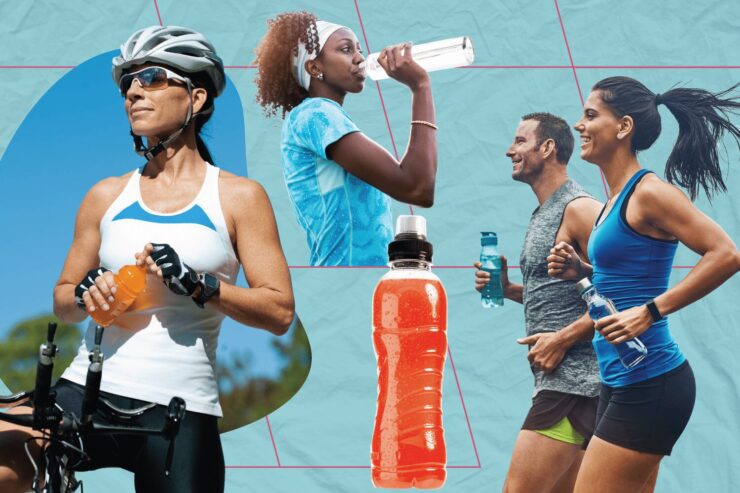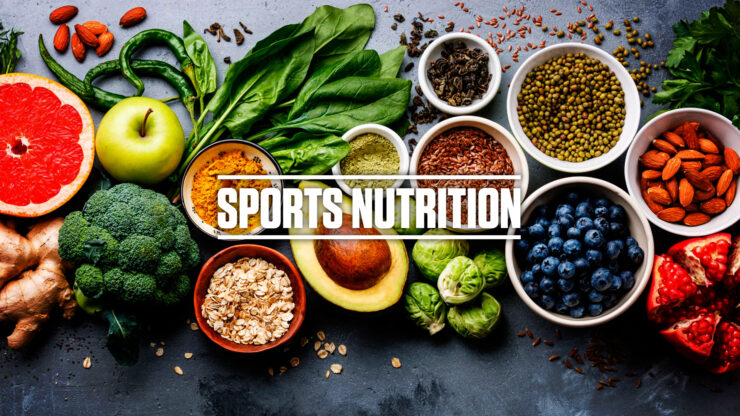If you’ve ever tried to get into shape, join a sports team, or just eat healthier in general, you’ve likely come across a ton of advice about what to consume.
Sport nutrition is full of long-time myths and misconceptions. Today, we debunk some of the most popular myths and help you make informed decisions about your diet. If you’re more interested in virtual sports, use your https://20bet.com/live login to get the online games going. Then let’s learn to separate fact from fiction when it comes to these popular myths.
Contents
1. Protein Shakes are Essential After Every Workout

Reality: Protein shakes can be helpful, but they’re not a must-have after every workout. Our bodies do need protein to repair and grow muscle, but many people can get enough from what they regularly eat.
If you’ve had a super intense workout or you’re training for a marathon, a protein boost might help. But for a regular gym session? A balanced meal with protein will do the trick.
2. Carbs are the Enemy
Nope, carbs are not the bad guys here. Athletes, in fact, rely on carbohydrates as a primary energy source for sports events. When you eat them, your body breaks them down into glucose, which fuels your muscles.
Cutting this out can make you feel sluggish and impact your performance during sports events. The key? Eat complex carbs like whole grains, fruits, and vegetables for sustained energy.
3. All Fat is Bad for Athletes
Reality: Fat is an essential part of a balanced diet. While you shouldn’t go overboard with greasy junk food, healthy fats from sources like avocados, nuts, and olive oil can be beneficial. These fats help with long-term energy, hormone production, and nutrient absorption.
4. Sports Drinks are Essential for Hydration

Reality: While sports drinks replace electrolytes lost during intense workouts, they’re not necessary. For most people, water is more than enough to stay hydrated.
They often come loaded with sugars, so unless you’re sweating buckets for over an hour, plain water will do fine.
5. Supplements Can Replace Real Food
Reality: Supplements can be beneficial in certain situations, but they’re not a substitute for real food. Our bodies thrive on a varied diet full of different nutrients.
Whole foods provide a complex nutritional profile that supplements can’t mimic. Remember, it’s called a “supplement” for a reason – it’s meant to fill gaps, not replace meals.
6. More Protein Means More Muscle
Reality: Although more protein isn’t always better, it’s essential for muscle growth and repair. But, the amount that your body can use at once is restricted. More food than your body requires won’t make you gain more muscle. It could result in extra calories. Balance is the key to success.
7. Athletes Don’t Need to Worry About Their Intake

Reality: Even if you’re burning a ton of calories, what you eat matters. Proper nutrition helps with recovery, performance, and preventing injuries.
A slice of pizza here and there won’t hurt, but fueling your body with the right nutrients most of the time will make a difference in how you feel and perform.
8. Vegan Athletes Can’t Get Enough Protein
Reality: This myth has been floating around for quite some time. Many believe that plant-based diets lack the necessary protein for a top-notch performance. With careful planning, vegan athletes can get all they need from plant sources. Lentils, beans, quinoa, tofu, tempeh, and many other vegan-friendly foods packed with this compound.
Many top athletes have thrived on all vegan diets, proving that meat isn’t the only source of muscle-building nutrition. As with anything you consume, it’s all about balance and ensuring you get a range of nutrients from various foods.
Closing Thoughts
Sports nutrition can seem complex, but it all boils down to making informed choices. Remember to listen to your body, and if you’re ever in doubt, seek advice from a dietitian or nutritionist. Eat well, train hard, and let’s forget those common myths together.

